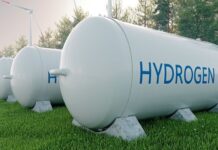In recent years, home generators have exponentially increased in adoption in the U.S. as dependable safeguards against power outages and interruptions in the electrical supply. These appliances offer homeowners a heightened sense of assurance, augmenting safety and self-sufficiency during unforeseen electricity blackouts; this article evaluates the advantages and critical factors to consider concerning home generator installation to safeguard a home.
Understanding Home Generators
Home generators (often known as standby generators or backup generators) are electrical devices designed to provide a continuous source of power when the main electrical grid fails; these generators are typically connected directly to a home’s electrical system and can automatically detect power outages, swiftly restoring electricity to the household. Home generators come in various sizes and configurations, making them suitable for a wide range of applications, from powering essential appliances to supporting an entire home.
The Overarching Advantages of Home Generators
- Reliable electricity supply: Home generators offer a consistent and dependable source of electrical power; in the event of primary grid interruption, the generator activates automatically, ensuring uninterrupted operation of essential electrical appliances and systems, including refrigeration, heating and medical equipment. This reliability is particularly valuable in regions prone to frequent power outages caused by weather-related incidents or infrastructure challenges.
- Safety and security: Home generators enhance safety and security by providing illumination during power outages, maintaining operational lighting and thereby preventing accidents and intrusions in the absence of light. Additionally, generators can power security systems, safeguarding homes even when the main grid is offline.
- Climate control: Home generators sustain climate control by powering heating and cooling systems; this is critical for extreme weather conditions, ensuring homes maintain a comfortable temperature for all occupants, particularly vulnerable individuals such as children, the elderly, or those with chronic health concerns.
- Preservation of food: The ability to maintain power in refrigerators and freezers is crucial for preserving perishable items; a generator prevents food spoilage during extended power outages, resulting in cost savings and reduced waste.
- Medical requirements: Individuals with medical conditions reliant on electrical equipment, such as ventilators or oxygen concentrators, rely on home generators to maintain their health and well-being. In critical situations, these devices can be life-saving.
- Sump pump functionality: Home generators enable sump pumps to operate, preventing basement flooding during heavy rainfall or storms. This functionality safeguards the structural integrity of homes and the valuable items within.
- Continuity of business operations: For those operating home-based businesses, a home generator can be a vital asset in sustaining business operations during a power outage. It guarantees the capacity to maintain work, meet deadlines and keep a steady income stream.
- Property value enhancement: The presence of a home generator can notably increase the value of a property – potential homebuyers often view generators as an attractive feature, recognizing the convenience and security they provide.
Types of Home Generators
Home generators come in several classes, each suited to distinct requirements and budgets:
- Portable generators: Portable generators are cost-effective and versatile, providing temporary power to selected appliances via extension cords; however, they require manual operation and fuel storage, thus are ill-suited for whole-home power backup.
- Standby generators: Standby generators are permanent fixtures that automatically operate when the main power supply fails and are powerful enough to support an entire household, making them a popular choice for long-term backup power.
- Inverter generators: Inverter generators are a more recent innovations known for their efficiency and quieter operation. They produce clean and stable power, making them suitable for sensitive electronic devices.
- Solar generators: Solar generators utilize solar panels to generate electricity, offering a sustainable and eco-friendly power source and are suitable for powering small appliances and devices.
- Dual-fuel generators: Dual-fuel generators can run on either gasoline or propane, providing flexibility and extended runtime options during power outages.
Considerations Before Installing a Home Generator
Before proceeding with the installation of a home generator, several factors should be taken into account:
- Generator size: The size of the generator should be determined based on specific requirements – consider essential appliances and systems that require power during an outage and select a generator with the appropriate capacity.
- Fuel source: Different generators use various fuel sources, such as gasoline, propane or natural gas. Identify a generator that aligns with the availability of these fuel sources and any relevant preferences.
- Installation and maintenance: Professional installation and regular maintenance are necessary to ensure the proper functioning of home generators; consider installation costs and ongoing maintenance when budgeting for a generator. This aspect is assessed further below.
- Local regulations: Before installation, verify with local authorities and homeowner associations for any applicable regulations or permits related to generator installations in a local area.
- Noise levels: Some generators can produce significant noise during operation – take into consideration the noise output and select a generator that aligns with comfort preferences.
- Environmental impact: For those with environmental concerns, it may be worth considering generators that demonstrate higher fuel efficiency and lower emissions.
- Warranty: Confirm the presence of a warranty that offers assurance in case of defects or issues with the generator.
- Budget: Home generators vary widely in cost; determine budget constraints and select a generator that aligns with financial considerations.
Installation and Maintenance
The installation of a home generator is a task best addressed by professionals as it involves connecting the generator to the home’s electrical system and ensuring seamless operation during power outages. Moreover, professional installation is paramount for safety and compliance with local electrical codes. Once installed, regular maintenance is critical to keep the generator in optimal condition – this includes periodic checks of the fuel source, oil changes and overall system inspections. Future maintenance can be performed by the generator manufacturer or a certified technician.
Environmental Considerations
Home generators typically run on fossil fuels, such as gasoline, propane or natural gas; although these fuels are convenient and reliable, they have implicit environmental implications, including carbon emissions and reliance on finite resources. If environmental considerations are a priority, exploring alternative options like solar generators or dual-fuel generators utilizing cleaner energy sources is advisable – these alternatives can mitigate the carbon footprint of backup power systems.
Budgeting for a Home Generator
The cost of a home generator can vary significantly based on factors such as generator type, size and installation requirements; portable generators are generally more affordable, while standby generators tend to be more expensive due to their capacity and automatic operation. In addition to the initial purchase cost, it is discerning to budget for ongoing expenses, including fuel, maintenance and any required permits or inspections. While the upfront investment in a home generator may appear considerable, it can provide long-term value in terms of safety, convenience and property value.









































